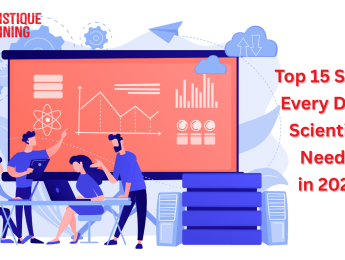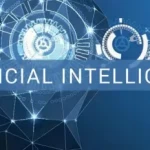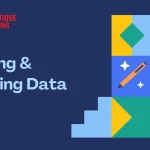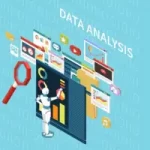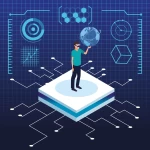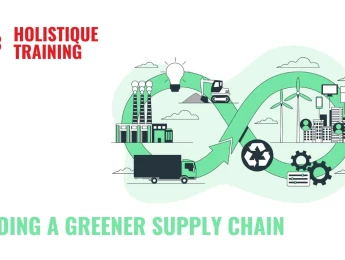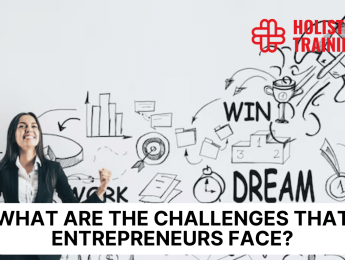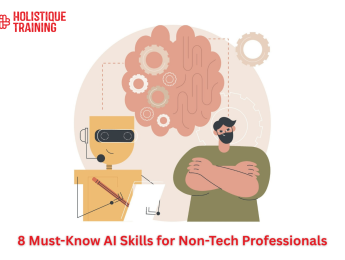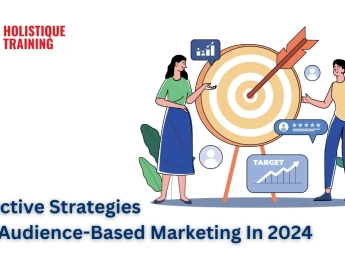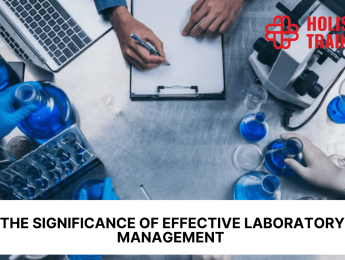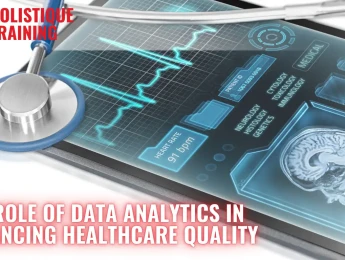- Table of Contents
- Introduction
- Why 2025 Will Be Different
- Understanding the Role of a Data Scientist
- Who Needs to Read This List?
- The Top 15 Data Scientist Skills For 2025
- I. Technical & Analytical Skills
- II. Data Visualization & Communication
- III. Emerging Trends & Specialized Skills
- IV. Soft Skills & Business Acumen
- Conclusion
Introduction
In the rapidly advancing digital age, data has emerged as the cornerstone of decision-making across industries. From healthcare to finance, and from retail to transportation, organizations are increasingly relying on data-driven insights to steer their strategies and operations. As we approach 2025, the role of the data scientist is undergoing significant transformation, necessitating a diverse and evolving skill set.
This article delves into the top 15 skills that data scientists will need to thrive in 2025. We'll explore why these skills are becoming essential, how they differ from past requirements, and what steps professionals can take to acquire and hone them. Whether you're a student aspiring to enter the field, a programmer looking to transition into data science, or a seasoned professional aiming to stay ahead, this guide will provide valuable insights into the competencies that will define success in the coming years.
Why 2025 Will Be Different
The year 2025 is poised to be a pivotal point in the evolution of data science. Several factors contribute to this shift:
- Advancements in Artificial Intelligence: The integration of AI into various sectors has accelerated, leading to more complex models and algorithms. Data scientists must now understand and implement sophisticated AI techniques to remain competitive.
- Emphasis on Ethical AI: With AI systems influencing critical decisions, there's a growing demand for transparency and fairness. Data scientists are expected to ensure that models are free from biases and are explainable to non-technical stakeholders.
- Real-Time Analytics: The need for immediate insights has led to the adoption of real-time data processing. Professionals must be adept at handling streaming data and providing instant analysis.
- Cross-Functional Collaboration: Data science is no longer siloed. Collaboration with various departments, from marketing to operations, is essential. This requires strong communication skills and an understanding of diverse business functions.
These developments signify that the data scientist's role is expanding beyond traditional boundaries, requiring a blend of technical prowess, ethical awareness, and interpersonal skills.
Understanding the Role of a Data Scientist
A data scientist is a professional who extracts meaningful insights from data to inform decision-making. Their responsibilities encompass:
- Data Collection and Cleaning: Gathering data from various sources and ensuring its quality.
- Statistical Analysis: Applying statistical methods to interpret data patterns.
- Model Building: Developing predictive models using machine learning algorithms.
- Data Visualization: Presenting findings in an understandable format for stakeholders.
- Collaboration: Working with cross-functional teams to implement data-driven strategies.
The impact of data scientists is profound. By uncovering trends and patterns, they enable organizations to make informed decisions, optimize operations, and innovate. Their work leads to increased efficiency, cost savings, and competitive advantages.
Who Needs to Read This List?
This guide is tailored for:
- Students: If you're pursuing a degree and considering a career in data science, understanding these skills will help you focus your studies and extracurricular activities effectively.
- Programmers: For those with a programming background aiming to transition into data science, this list will highlight the additional competencies required to make a successful shift.
- Professionals: If you're already in the field and seeking to stay relevant, this guide will inform you of emerging trends and areas for upskilling.
By identifying and developing these skills, you'll position yourself for success in the dynamic landscape of data science in 2025 and beyond.
The Top 15 Data Scientist Skills For 2025
As the world moves toward a future driven by automation, personalization, and fast-paced digital decision-making, the skill set of a data scientist is evolving beyond just crunching numbers and writing code. Companies are now looking for professionals who can not only build accurate models but also communicate their insights clearly, ensure ethical implementation of AI systems, and adapt to real-time challenges using cloud infrastructure and scalable tools. The shift toward hybrid roles and data democratization means that technical skills alone are no longer enough. Instead, successful data scientists in 2025 will combine deep analytical capabilities with storytelling finesse, business context, and cross-functional collaboration.
To help make sense of this evolution, we’ve organized the 15 most in-demand data science skills for 2025 into four core categories:
Technical & Analytical Skills | Data Visualization & Communication | Emerging Trends & Specialized Skills | Soft Skills & Business Acumen |
Statistical Analysis & Probability | Data Visualization Tools (Tableau, Power BI, Plotly) | AI Ethics & Explainability (XAI) | Critical Thinking & Problem Solving |
Machine Learning & Deep Learning | Storytelling with Data | MLOps & Model Deployment | Business Understanding & Domain Knowledge |
Programming Languages (Python, R, SQL) | Dashboard Design & UX Principles | Cloud Computing for Data Science (AWS, Azure, GCP) | Collaboration & Communication in Cross-Functional Teams |
Data Wrangling & Data Cleaning |
| Real-Time Data Processing & Streaming Analytics |
|
Big Data Technologies (Spark, Hadoop, etc.) |
|
|
|
I. Technical & Analytical Skills
Statistical Analysis & Probability
Understanding statistical analysis and probability isn’t just about formulas—it’s the foundation for interpreting data correctly, identifying patterns, and quantifying uncertainty. In 2025, as businesses seek more reliable insights in uncertain environments, fluency in statistics will empower data scientists to build models that not only predict outcomes but also explain confidence intervals and potential risks. Developing this skill involves practicing hypothesis testing, regression analysis, and learning how to validate assumptions before jumping into machine learning. You can enhance this skill by working with real-world datasets and focusing on experimental design.
Machine Learning & Deep Learning
The ability to build, train, and fine-tune models remains at the heart of data science. With AI dominating almost every industry in 2025—from finance to education—data scientists must stay ahead with techniques in both supervised and unsupervised learning, reinforcement learning, and especially deep learning architectures like CNNs and RNNs. These methods enable smarter automation, personalized recommendations, and advanced forecasting. To sharpen this skill, continuous experimentation using platforms like Kaggle, mastering frameworks like PyTorch, and following current research papers is essential.
Programming Languages (Python, R, SQL)
A data scientist's toolbox starts with code. Python remains the go-to language for its versatility, R is highly regarded for statistical computing, and SQL is indispensable for managing and querying databases. Proficiency in these languages means faster data manipulation, efficient pipeline creation, and better integration with production systems. In 2025, with more emphasis on reproducibility and collaboration, clean, modular, and well-documented code will set professionals apart. Daily practice, contributing to open-source projects, and building your own data apps are effective ways to advance here.
Data Wrangling & Data Cleaning
Real-world data is never perfect—it’s messy, inconsistent, and often incomplete. Being able to clean and preprocess data efficiently saves time and avoids costly errors downstream. Whether you're dealing with missing values, duplicates, or inconsistent formats, this skill ensures your models are built on trustworthy inputs. In 2025, with data coming from diverse sources and sensors, automated and scalable data preparation will be in demand. Learning how to use tools like Pandas, writing reusable functions, and creating data quality checks are key to mastering this domain.
Big Data Technologies (Spark, Hadoop, etc.)
As datasets grow exponentially, traditional tools fall short. That’s where big data frameworks like Apache Spark and Hadoop come into play, allowing parallel processing and distributed storage. In 2025, organizations will increasingly rely on these technologies to handle real-time, high-volume data. Data scientists need to understand how to write efficient queries and optimize pipelines using these platforms. Gaining hands-on experience with large datasets, cloud-based clusters, and even certifications in big data technologies will enhance your competitive edge.
II. Data Visualization & Communication
Data Visualization Tools (Tableau, Power BI, Plotly)
Presenting data in an interactive and visually appealing way is just as important as analyzing it. Tools like Tableau and Power BI help translate complex results into intuitive visuals for non-technical stakeholders. In 2025, with dashboarding becoming an everyday activity in business, data scientists will be expected to design engaging, real-time visuals that guide action. Building interactive charts, understanding color theory, and learning how users interact with data will improve your storytelling capabilities.
Storytelling with Data
Raw numbers rarely influence decisions—stories do. The ability to contextualize your findings, structure a narrative, and speak the language of your audience is vital. In 2025, when decisions are being made faster than ever, clear and persuasive storytelling will be a differentiator. Whether through slide decks, reports, or verbal presentations, crafting a beginning, middle, and end around your data ensures your work is understood and impactful. Practice writing executive summaries and simulating business scenarios to build this strength.
Dashboard Design & UX Principles
A good dashboard does more than just show charts—it guides decisions. UX design principles help in creating layouts that are intuitive, focused, and informative. In 2025, as more tools offer drag-and-drop interfaces, it’s those with an eye for detail and usability who will stand out. Knowing where to place metrics, how to minimize cognitive load, and how to prioritize information will make your dashboards not only functional but delightful to use.
III. Emerging Trends & Specialized Skills
AI Ethics & Explainability (XAI)
With AI models influencing areas like hiring, lending, and law enforcement, ensuring ethical use is no longer optional. Explainable AI helps build transparency and trust, allowing stakeholders to understand how decisions are made. In 2025, regulatory frameworks will demand that data scientists provide not only predictions but also justifications. Tools like SHAP and LIME make these interpretations easier. Building this skill means staying updated on fairness metrics, learning model audit techniques, and integrating ethical checks into your pipeline.
MLOps & Model Deployment
Building a model in a Jupyter notebook is one thing—deploying it in a real-world system is another. MLOps bridges that gap, combining development, monitoring, and automation to ensure models remain reliable over time. With the scaling of AI in production across sectors, 2025 will demand fluency in version control, CI/CD, and automated retraining. To strengthen this skill, learn tools like MLflow, Docker, and Kubernetes, and simulate production workflows in cloud environments.
Cloud Computing for Data Science (AWS, Azure, GCP)
Cloud platforms have democratized access to high-powered computing resources. In 2025, nearly every serious data science role will require working with AWS, Azure, or GCP. Whether it's running models on GPUs or setting up pipelines that auto-scale, cloud fluency ensures that your solutions are fast, scalable, and cost-effective. Getting certified in cloud services and working on end-to-end projects hosted in the cloud are excellent ways to gain experience.
Real-Time Data Processing & Streaming Analytics
The future is real-time. Whether it’s fraud detection, sensor analysis, or recommendation systems, businesses want answers as events happen. Skills in stream processing tools like Apache Kafka and Flink will be highly valuable in 2025. Data scientists must design systems that handle high-frequency data and generate immediate insights. Building simple event-driven applications and studying stream architectures will help embed this competence into your toolkit.
IV. Soft Skills & Business Acumen
Critical Thinking & Problem Solving
In data science, problems are rarely clear-cut. Critical thinking allows professionals to frame problems correctly, question assumptions, and choose the right methodologies. As 2025 brings more data complexity, the ability to cut through noise and solve relevant challenges will be indispensable. Practicing case studies and engaging in peer reviews sharpens this analytical lens.
Business Understanding & Domain Knowledge
Context matters. A model that works in finance might fail in healthcare. Understanding the industry you work in ensures your solutions are practical and aligned with organizational goals. In 2025, companies will value data scientists who don’t just code but also think like product managers. Immerse yourself in your industry, study key metrics, and attend domain-specific conferences to build this awareness.
Collaboration & Communication in Cross-Functional Teams
No data scientist works alone. Whether it’s communicating with engineers or marketing teams, being able to collaborate effectively determines how well your work is implemented. In 2025, as data science becomes more integrated across functions, skills like active listening, feedback integration, and documentation will be in high demand. Join agile teams, practice sprint-based workflows, and use collaborative platforms to boost this skill.
Conclusion
The landscape of data science is undergoing a profound transformation—where once technical expertise alone was enough, now a broader, more integrated skill set is required. In 2025, the most valuable data scientists will be those who blend statistical rigor with business acumen, code with communication, and innovation with ethics. Mastering the 15 essential skills covered in this guide will not only future-proof your career but also place you at the forefront of the data-driven revolution shaping every industry. Whether you're just entering the field or aiming to stay competitive, remember that continuous learning, cross-disciplinary collaboration, and a human-centered approach are the keys to thriving in the data science profession of tomorrow.
Don't forget to subscribe to our Newsletter to Stay updated with the latest insights!


